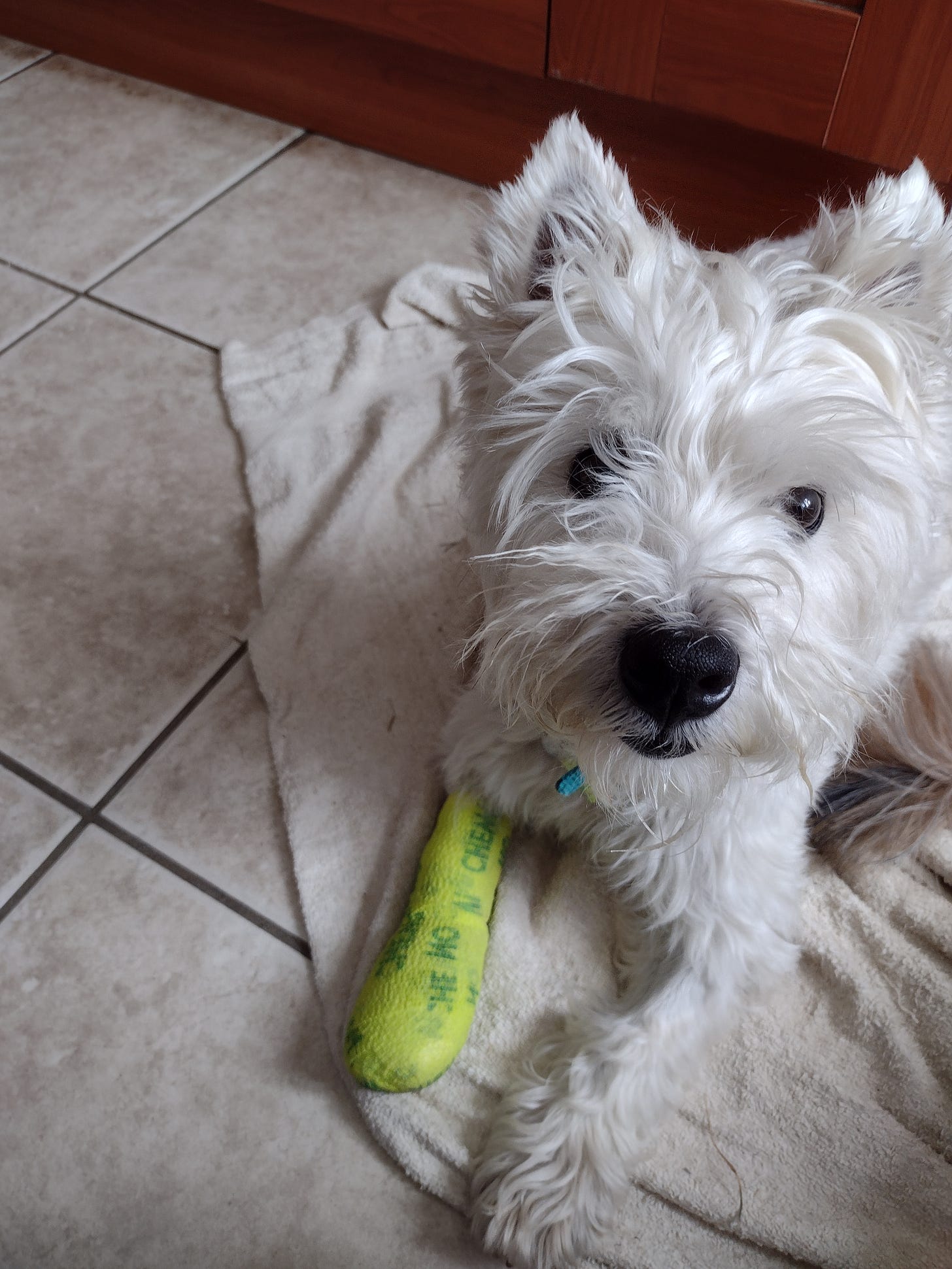Mobility Matters Daily #344 - Psychology and e-bikes
Good day my good friend.
I must say a big apology to those of you who I hoped to meet at TPM both today and tomorrow. Unfortunately my plans changed due to unforeseen circumstances. One of those has a name - Jasper.
I mean, how can you not look at that and NOT feel sorry for him? Bless him. Anyway, we should catch up soon.
I also apologise that this newsletter is slightly short, as this is due to the other unforeseen circumstance. At the time of writing I am in crippling pain with a cracked tooth, so concentrating is hard!
If you have any suggestions for interesting news items or bits of research to include in this newsletter, you can email me.
You should also join a lot of like-minded people at Mobility Camp in Bristol in September. Tickets are on sale now.
James
Psychology played a big role in transport decision making during COVID-19
This great study of test subjects in Iran explored the role of personal obligations and the theory of planned behaviour in changes in travel patterns when responding to COVID-19. Very simply, people reduced their travel and number of trips based on personal moral obligation as well as a reduced need for the trips.
The findings imply that participants in our sample made deliberate and planned psychological decisions (aligned with the theory of planned behaviour) regarding potential travel behavioural decisions during the COVID-19 pandemic. The findings also highlighted that perceived behavioural control grows in importance alongside growth in difficult circumstances.
E-bikes expands people’s travel horizons
As an owner of an e-bike, I can verify the findings of this research myself. So many more areas become far more accessible with an e-bike. In this case, the study focussed on trials with elderly people, who experienced exactly the same results. E-bikes truly are a miracle solution.
The findings demonstrate how power assistance can provide riders with the opportunity to extend the distance and types of area they are willing to cycle from their homes (their ‘ranging behaviour’) and how this can promote health and wellbeing. Our evidence suggests that e-bikes have the potential to support cycling for leisure as well as everyday travel and that consideration should be given to the positive effects of e-cycling on mental wellbeing in addition to physical activity.
Random things
These links are meant to make you think about the things that affect our world in transport, and not just think about transport itself. I hope that you enjoy them.
This could be the coolest summer of the rest of your life (Vox)
How Amazon Branded Convenience and Normalized Monopoly (MIT Press Reader)
The End of the Asset Economy (The Atlantic)
Bad things will happen when the AI sentience debate goes mainstream (The Next Web)
Something interesting

18% of Americans either have no bank account or are underbanked. Imagine how difficult your life would be without one, or without good access to one. This is an element of social exclusion that is often overlooked.
If you do nothing else today, then do this
Play the Census 2021 population map game. Yep, data from the UK Census 2021 is starting to be released. So go get your first portion of it, and play a fun game while you are at it.


